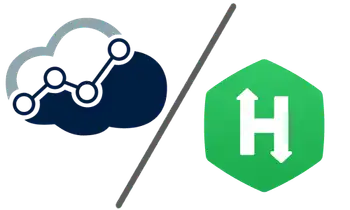Alooba Assess vs Codility

Any time you’re looking for a new product to solve your problem, we realize that the comparison process can be a little confusing, especially if you’re not an expert in the field. There’s a lot of buzzwords floating around and it’s hard to separate the wheat from the chaff.
This quick article explains the main differences between Alooba Assess and Codility. Got questions? Feel free to contact us here.
Alooba Assess is unique, being the only skills assessment platform tailored specifically to data skills. That is the fundamental difference between Alooba Assess and all other products that you might be evaluating.
There are hundreds of coding skills platforms on the market. One of the leading coding skills platforms is Codility. So you might be asking, what’s the difference between Alooba Assess and Codility?
This article is for you.
Looking to assess your candidates for data roles? Get started now with Alooba Assess.
What is Alooba Assess?
Alooba has several products. Alooba Assess is used by organizations to assess the skills of data candidates and is the focus of this comparison article.
What are the similarities between Alooba Assess & Codility?
Let’s start with the similarities between the two platforms.
Alooba Assess & Codility are both skills assessment platforms that organizations use to improve their hiring process. Skills assessments are proven to be a strong predictor of job performance, and offer a level of objectivity that CV screening & interviews do not.
In skills assessments, candidates are presented with various types of tests with questions that are relevant to their role. For example, for data analyst roles, it’s really important to be able to wrangle & clean data, do basic statistical analysis, interpret charts and query databases. These would all be sensible skills to assess a data analyst for before hiring them, to ensure they have the skills to do their day-to-day job well. These are all skills you can evaluate with Alooba Assess.
Which skills do organizations use Alooba Assess or Codility for?
This is one of the fundamental differences between Alooba Assess and a coding skills platform like Codility.
With Alooba Assess you can assess a range of more than 50+ skills relating to data.
With Codility and other coding platforms, you can assess the ability to code in various programming languages, like Java, Ruby, JavaScript & PHP. Most of these coding languages are not used in any data roles and the coding challenges are generally not data focused. They are challenges that you face as, say, a software developer, not a data analyst or data scientist.
Quick tip - you can tell what the platforms are used for by their names. CoderPad, HackerRank, Codility, are all about coding/programming.
Here’s a quick comparison of the skills covered by Alooba Assess vs Codility. There’s some crossover, but the coverage is quite different as you will see.
| Skill | Alooba Assess | Codility |
|---|---|---|
| Analytics Management | ✅ | ❌ |
| Analytics | ✅ | ❌ |
| Apache Spark | ✅ | ❌ |
| APIs | ✅ | ✅ |
| Business Acumen | ✅ | ❌ |
| Chart Interpretation | ✅ | ❌ |
| Data Analysis | ✅ | ❌ |
| Data Governance | ✅ | ❌ |
| Data Literacy | ✅ | ❌ |
| Data Management | ✅ | ❌ |
| Data Modelling | ✅ | ❌ |
| Data Science | ✅ | ❌ |
| Deep Learning | ✅ | ❌ |
| DevOps | ✅ | ✅ |
| Digital Marketing Analytics | ✅ | ❌ |
| Functional Programming | ✅ | ✅ |
| Google Analytics | ✅ | ❌ |
| Hadoop | ✅ | ❌ |
| Internet Security | ✅ | ❌ |
| Java | ✅ | ✅ |
| JavaScript | ✅ | ✅ |
| Machine Learning | ✅ | ❌ |
| Microsoft Excel | ✅ | ❌ |
| Natural Language Processing | ✅ | ❌ |
| Neural Networks | ✅ | ❌ |
| Object-Oriented Programming (OOP) | ✅ | ✅ |
| Product Analytics | ✅ | ❌ |
| Programming Concepts | ✅ | ✅ |
| Python | ✅ | ✅ |
| Quality Assurance (Testing) | ✅ | ❌ |
| R | ✅ | ✅ |
| Relational Databases | ✅ | ❌ |
| Reports & Visualisations | ✅ | ❌ |
| Scala | ✅ | ✅ |
| Software Development Life Cycle (SDLC) | ✅ | ✅ |
| Source Control with Git | ✅ | ❌ |
| SQL | ✅ | ✅ |
| Statistics | ✅ | ❌ |
| Systems Architecture | ✅ | ❌ |
But wait, don’t data roles ‘code’?
Yes, ‘coding’, especially in Python, R, and SQL is still part of some data roles, but it’s a relatively small component of the skillset of a data professional. And the types of problems you solve with code are quite different. So while a software engineer and data analyst may both need to know SQL, the way they use SQL and the types of problems they use SQL to solve are quite different.
Also, there are many other critical skills (see above) that the various roles in data need to have and that organizations therefore need to assess when hiring. This is where Alooba Assess comes in.
Which roles do organizations use Alooba Assess or Codility for?
This is one of the main differences between Alooba Assess and Codility. Alooba Assess is typically used for data roles while Codility is used for coding roles. This explains why the skills coverage is so different.
The most common roles Alooba Assess is used for are data analysts, data engineers, data scientists, product analysts, BI analysts, BI developers, marketing analysts, etc.
Meanwhile, Codility is used for coding roles like software engineers, software developers, backend engineers, DevOps engineers, etc.
These roles have very different responsibilities, day-to-day tasks and sit in different parts of the business.
What seniority of roles do organizations use Alooba Assess or Codility for?
Alooba Assess is used from entry level roles (e.g. Junior Data Analyst) all the way through to senior management roles (e.g. Head of Data Science).
Codility is typically used for individual contributor roles and those who are ‘on the tools’ still, such as software engineers.
Can Alooba Assess be used for all roles in an organization?
While Alooba Assess is mainly used by organizations for data specific roles, actually some of our more forward thinking clients now use an objective Alooba Assess data literacy assessment for all their hires.
They understand the critical place data literacy has in their organization now and in the future. Every role is becoming more data-driven, and so there’s an expectation that every role has a basic data literacy skillset, needed to make informed decisions each day.
However, Codility assesses coding skills that are only relevant in a niche set of roles in an organization. Hand-coding (manually creating applications) is actually becoming progressively less relevant, as technology becomes simplified, and no-code and low-code solutions take precedence.
Can I use Codility to assess data roles?
You could use Codility to assess the coding component of some data roles, however, that is a small part of the skillset and so you wouldn’t understand the candidate’s capabilities across the other required skills. Codility is a fantastic product when used correctly to assess coding roles. Most data roles require a much broader array of skills than just ‘coding’.
Where in the hiring funnel do organizations use Alooba Assess vs Codility?
There are two main places to use Alooba Assess.
First, right at the top of the funnel, as a substitute for manual CV screening. Manual CV screening is known to be inaccurate and biased against people from certain ethnicities. Any manual process is also expensive and bogs down the hiring process, increasing the time to hire. 95-99% of candidates get rejected at the CV screening stage, and this is where the biggest bias and problem is in hiring. This is the best place to use Alooba as it impacts every candidate.
Second, as a replacement to take home projects. Take-home projects, while a good predictor of a candidate’s ability to do the job, place a huge burden on both the candidate and the organization, and lead to a lot of dropoff in the hiring process. Not only do the take-home projects need to be created and maintained, they then need to be administered for each candidate. This involves cumbersome sharing of the project and back-and-forth instructions/assistance, and then the grading process. This is typically around 30-60 minutes per candidate, and normally involves senior individual contributors like senior data scientists. This again blows out the hiring costs, increasing the time to hire and creates drop-off in the hiring process.
Codility is used towards the end of the hiring process on a small set of candidates. This limits its influence on the hiring process as it only impacts 1-4% of candidates. This is also borne out in Codility’s per candidate assessed pricing model, which can really add up quickly.
What about assessing my team or organization?
Organizations use Alooba Growth to assess the data literacy capabilities of their team & people. Alooba Growth helps them to identify skills gaps in their teams, and assess the efficacy of their learning & development exercises.
Codility is not used to assess existing employees.
What about assessing juniors & graduates?
Organizations use Alooba Junior to assess their graduates and interns for crucial data literacy skills.
Codility is not normally used to assess juniors and graduates.
When is Alooba Assess not the right choice?
The first step is admitting you have a problem, and so not every organization is ready for objective hiring. Alooba Assess is used by modern, forward-thinking organizations that recognize the need for change. They understand the biases in manual CV screening, traditional unstructured interviews and ‘cultural fit’ sessions, and have made a conscious decision to make their hiring process data-informed and objective.
If you’re not ready and committed to creating an objective and fair hiring process, we are probably not the right partner for you.
